THE VETERANS
SURVIVAL GUIDE
Also by John D. Roche
The Veterans PTSD Handbook:
How to File and Collect on Claims for Post-Traumatic Stress Disorder
THE VETERANS
SURVIVAL GUIDE
HOW TO FILE AND COLLECT
ON VA CLAIMS
SECOND EDITION
JOHN D. ROCHE

Copyright 2006 Potomac Books, Inc.
Published in the United States by Potomac Books, Inc. All rights reserved. No part of this book may be reproduced in any manner whatsoever without written permission from the publisher, except in the case of brief quotations embodied in critical articles and reviews.
Library of Congress Cataloging-in-Publication Data
Roche, John D., Maj.
The veterans survival guide : how to file and collect on VA claims / John D. Roche. 2nd ed.
p. ; cm.
Includes bibliographical references and index.
ISBN 1-59797-051-4 (alk. paper)
1. Military pensionsLaw and legislationUnited StatesPopular works. 2. Disabled veteransMedical careLaw and legislationUnited StatesPopular works. I. Title.
[DNLM: 1. United States. Dept. of Veterans Affairs. 2. Veterans Disability Claimslegislation & jurisprudenceUnited States. 3. Veteranslegislation & jurisprudenceUnited States. W 32.5 AA1 R673v 2006]
KF7276.R63 2006
331.2529135500973dc22
2006008905
ISBN-10: 1-59797-051-4
ISBN-13: 978-1-59797-051-8
(alk. paper)
Printed in the United States of America on acid-free paper that meets the American National Standards Institute Z39-48 Standard.
Potomac Books, Inc.
22841 Quicksilver Drive
Dulles, Virginia 20166
First Edition
10 9 8 7 6 5 4 3 2 1
CONTENTS
PREFACE
Billy Kidwells letter to the editor of Veterans Post, dated June 2005, expresses the anger and frustration that is common among veterans who have unsuccessfully dealt with the VA. Publications like this are a great forum for all the GI Joe Veterans to express their thoughts on what they see is wrong with the system. Here are Mr. Kidwells thoughts:
Dear Editor,
The Veterans Court Continues to Cover Up Wrong-doing By VA General Counsel
Evidence keeps mounting proving that the Court of Appeals for Veterans are extreme right wing zealots, who believe that Veterans should have no Veterans Court, and do not deserve benefits.
An investigation by Vets For Justice, has discovered that although the Veterans Court was established by Congress and supposed to be for Veterans, that the Court is nothing more then a sham, a hoax, intended to deceive Veterans, by making them believe they have a real Court, a fair, and impartial, Court to go to when the VA arbitrarily denies their VA Claim.
In reality, the Veterans Court is fixed, and stacked, with extreme right wing zealots, most of whom were appointed by the Bush Family, all of whom are bias against Veterans and believe Veterans Benefits is really welfare.
The numbers show that a Veteran has a better chance of hitting the lottery then of receiving a fair trail in Court of Appeals for Veterans.
The Veteran has prevailed in 13 cases out of 14,000!
Hanging Judge Roy Bean was far more lenient and impartial, then the Judges on the Veterans Appeals are!
We have found that there is a pattern that veterans who proceed Pro Se before the Veterans Court when they are unable to obtain an attorney, are taken advantage of by both the Veterans Court, and the General Counsel of the VA.
Billy Kidwell
Via Internet
I think you will agree that Mr. Billy Kidwell is correct in naming the invisible underlying theme of veterans frustration as the political agenda of those who are at the very top of the food chain. For the powers that be, the real issue is bottom-line cost. What can we do to reduce overhead and still look like we are behind our troops and veterans without creating a major backlash?
The real source of veterans problems is not the Court of Appeals for Veterans Claims, the Board of Veterans Appeals, or the VAs General Counsel Office. Mr. Kidwell touched on one very important issue, which is probably most responsible for the remands and denials made by the system. The veteran is under the impression that all that is required of him is to file a claim form and the VA will do the rest.
Big surprise! Approximately six weeks later the veteran receives his first letter from the VA. He is confused. It is asking for hard evidence that the injury or disease did in fact occur. Talking out loud to himself he asks what evidence its all in my military records. The telephone counselor told him over the phone not to worry, the VA would get his records.
Surprise number two! He receives a second letter three months later. This time the letter is brief, stating claim denied. Your claim failed to meet the standards necessary for the VA to trigger the VAs Duty to Assist. The telephone counselor never explained that the United States Court of Appeals for Veterans Claims ruled previously that unless the claimant submits sufficient evidence, the VA was not obliged help him.
For the veteran, the only option is to appeal the denial of benefits. He is bound to lose the appeal because of his initial failure to provide evidence that would convince an average person to conclude it was possible that the injury or illness was service-incurred.
This is a well-orchestrated technique to deny claims by the hundreds of thousands and focus the blame on the veteran. VA facts sheets titled VA Disability Claims Processing for the fiscal years 2003 and 2004 state that during this period 1.53 million veterans were notified of the final decision concerning their claim. One million two-hundred twelve thousand veterans received Dear John letters. This is a real victory for the White House. These 1,212,000 veterans will receive no compensation benefits, require no mandatory healthcare or vocational rehabilitation training. The White House can now divert the billions of dollars for projects that are in agreement with their political agenda. On June 23, 2005, Secretary of Veterans Affairs R. James Nicholson made known to one and all around the beltway that, due to mistakes in computing the veterans health care budget, the bureau had underestimated by over a billion dollars for fiscal year 2006 the cost just to provide the current level of basic services. It is hard to understand how they could make such an error when military and veterans organizations repeatedly and publicly protested that their estimate to operate all the required health services was insufficient.
Tighten up your seat belts, for veterans are in for a rough ride in the near future. The VA is rewriting title 38 of the Code of Federal Regulations (CFR). The plan is to completely delete Part 3, Adjudication, and reorganize it as Part 5. The dangers that advocates and veterans alike must be alert for are subtle changes in words like will to may or shall to shall at Secretarys discretion and the omission of subparagraphs used to explain the law more clearly.
Here is an example where the VA introduced wording in a revision (38 CFR 3.304(f) Direct service connection; wartime and peacetime) in 1993, which left unchecked the discretionary judgment of senior claims examiners when deciding the merits of a claim based on PTSD, POW, and personal assault. This revision, as it was touted, read as follows: if evidence establishes that the veteran engaged in combat, direct service connection will be approved. Who would have suspected that one little word like if could generate so many denied claims or generate complex requirements for securing proof that a veteran in fact engaged in combat with the enemy? In one case I worked on the VA wanted proof as to the date, place, and details of vets traumatizing experiences. Military records in the VAs possession confirmed he engaged in combat with the enemy because he was awarded the Purple Heart, Combat Infantry Badge, and the Bronze Star. The question that should be asked is, why would they ask for such detailed evidence when the veteran had these combat awards?
Next page

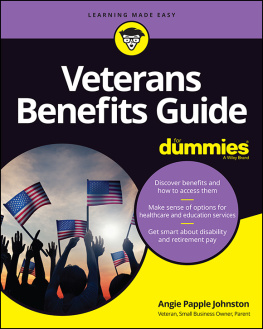
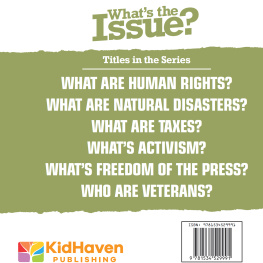
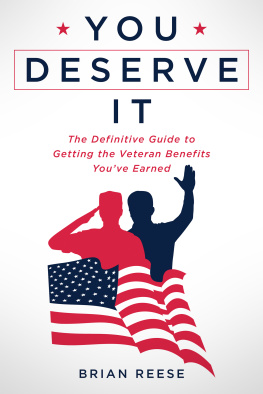

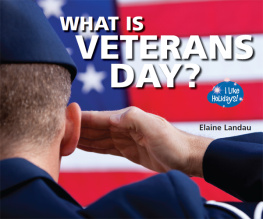
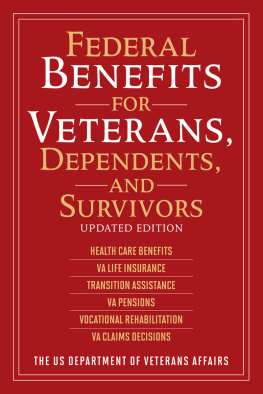
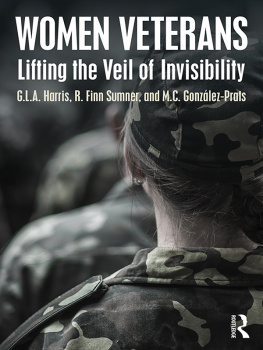
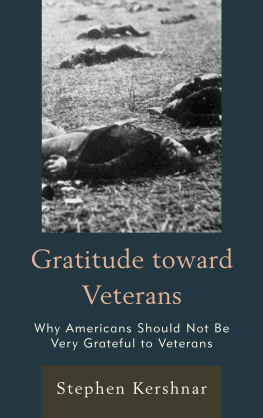
![Louis Hicks - The Civilian Lives of U.S. Veterans: Issues and Identities [2 volumes]](/uploads/posts/book/133676/thumbs/louis-hicks-the-civilian-lives-of-u-s-veterans.jpg)
